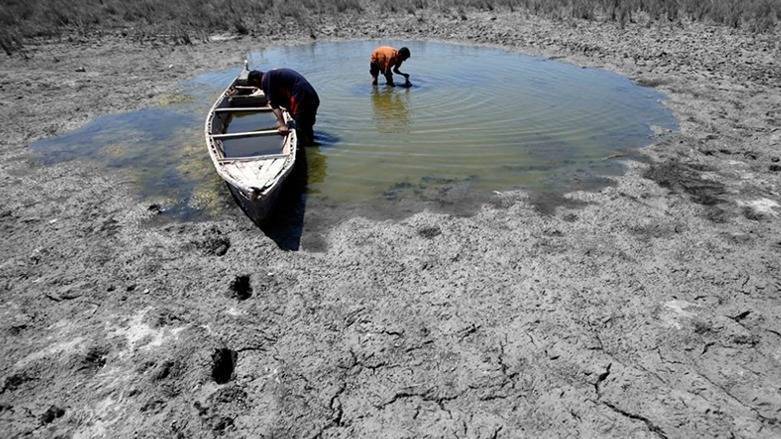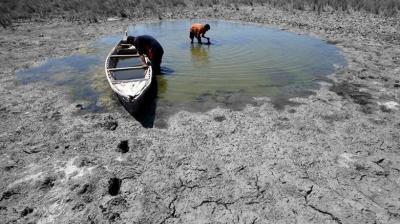The Dhi Qar Provincial Council revealed that the marshes have lost 60% of their fish wealth so far, expressing concerns about the severity of the situation. Yas Khefaji, spokesman for the Dhi Qar Provincial Council, stated in an interview with "Baghdad Today" that "a delegation from the council conducted a field visit to assess the repercussions of the marshes' drought and its direct impact on the lives of thousands of families, particularly those engaged in agriculture and fishing."
He added that "the marshes in Dhi Qar have generally lost 60% of their fish wealth due to the recent reduction of water, accompanied by the death of a significant number of livestock and buffalo." He confirmed that "the displacement from the marshes is ongoing, and the situation can be described as dangerous, although it has not reached a critical alert level."
Khefaji pointed out that "we cannot hide our deep concern over the severity of the situation in the marshes, and there is daily communication with the Ministry of Water Resources to seek an increase in water releases to save the marsh environment as much as possible."
Water resources expert Adel Al-Mukhtar confirmed on Thursday (August 15, 2024) that Iraqi marshes are experiencing their fourth setback due to the drought of the Euphrates River basin. Al-Mukhtar stated in an interview with "Baghdad Today" that "the reality of water flow from the Euphrates coming from Turkey towards Syria and from there towards western Iraq is very limited and does not meet even the minimum needs, leading to serious repercussions affecting southern provinces and causing setbacks in the marshes, particularly al-Hawiza, marking the fourth such event with the loss of its animal wealth."
He added that "the largest dam in Turkey is located on the Euphrates River and has a capacity of over 48 billion cubic meters," questioning, "Is it reasonable that there is no surplus water capacity to divert towards Iraq to mitigate the consequences of the river basin's drought, which has worsened in recent times?"
Al-Mukhtar also remarked, "What is the benefit of the recent Iraqi-Turkish agreement in Baghdad in the presence of Turkish President Recep Tayyip Erdogan, which involved swapping water for contracts, while previously it was water for oil? There has been no change in the underlying philosophy of what has occurred, but it would have been better to demand international arbitration and define Baghdad’s rights over the Tigris and Euphrates rivers to avoid any future crises."
The marshes are historic water bodies in Iraq but do not have a fixed right to water shares, as the Ministry of Water Resources treats them as secondary bodies rather than storage areas. Therefore, water is utilized for storage or rivers, and the marshes are only fed with a small and limited amount of water when there is a surplus, justified by the fact that these bodies quickly evaporate their water, rendering feeding them with water that will be lost to evaporation pointless.




